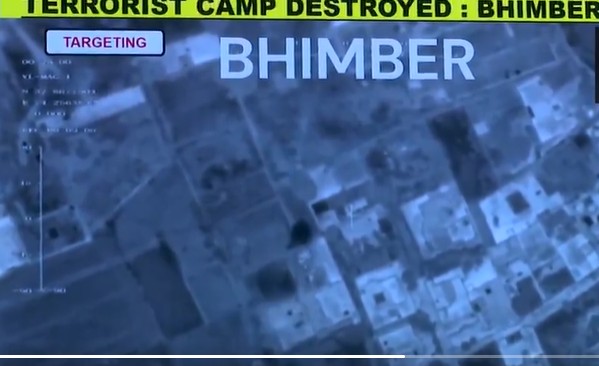May 7, 2025: New Delhi: Operation Sindoor – In a bold military response to the brutal terror attack in Pahalgam, Jammu and Kashmir, India has launched a high-intensity operation named ‘Operation Sindoor’, targeting terror infrastructure across the Line of Control.
The operation, initiated in the early hours of May 6, involved coordinated airstrikes and drone-led precision attacks on multiple identified terror camps and launchpads believed to be operated by groups like Lashkar-e-Taiba and Jaish-e-Mohammed. These strikes were concentrated in Pakistan-administered territories known for housing anti-India militant groups.
The operation involved precision airstrikes targeting nine sites across Pakistan and Pakistan-administered Kashmir, identified as terrorist infrastructure linked to groups such as Lashkar-e-Taiba and Jaish-e-Mohammed. The Indian Ministry of Defence emphasized that the strikes were “focused, measured, and non-escalatory,” aiming to dismantle terrorist capabilities without targeting Pakistani military installations
The move comes just weeks after the horrific Pahalgam incident that left over two dozen civilians dead, many of them targeted based on their religion. That attack, carried out by heavily armed militants, shook the nation and sparked outrage, prompting calls for a swift and strong retaliation.
Operation Sindoor Destroys Terror Camps in Pakistan

Indian defence officials described Operation Sindoor as a “calibrated counter-terrorism strike,” aimed at dismantling infrastructure used for launching cross-border attacks. Though India maintained the strikes were not aimed at provoking full-scale war, the response sends a clear signal of zero tolerance against terrorism.
On the ground, Indian forces remained on high alert, while the Air Force maintained control over key sectors. The operation reportedly neutralized several high-value targets, with military surveillance confirming the destruction of weapons stockpiles and training centers.
In response, Pakistan issued strong condemnation, calling the operation an act of aggression. It claimed to have shot down multiple Indian fighter jets and warned of a proportionate response. Both sides reported casualties, with heightened tensions along the border.
The situation has triggered urgent calls for restraint from the international community. Global powers, including the United Nations, are closely monitoring the developments, urging both nuclear-armed nations to avoid further escalation.
Operation Sindoor marks a strategic shift in India’s counter-terror doctrine, combining swift retribution with international messaging. It also reflects the growing public demand for holding terror sponsors accountable beyond Indian borders.
The Pahalgam attack, attributed to The Resistance Front (TRF), a proxy of Lashkar-e-Taiba, involved militants who separated male tourists based on their religion before opening fire, resulting in 25 Hindu tourists, one Christian tourist, and a local Muslim pony operator being killed. The attack has been described as the deadliest on civilians in India since the 2008 Mumbai attacks
While the situation remains tense, the operation is being seen domestically as a strong and symbolic move that affirms India’s stand against state-supported terrorism.






